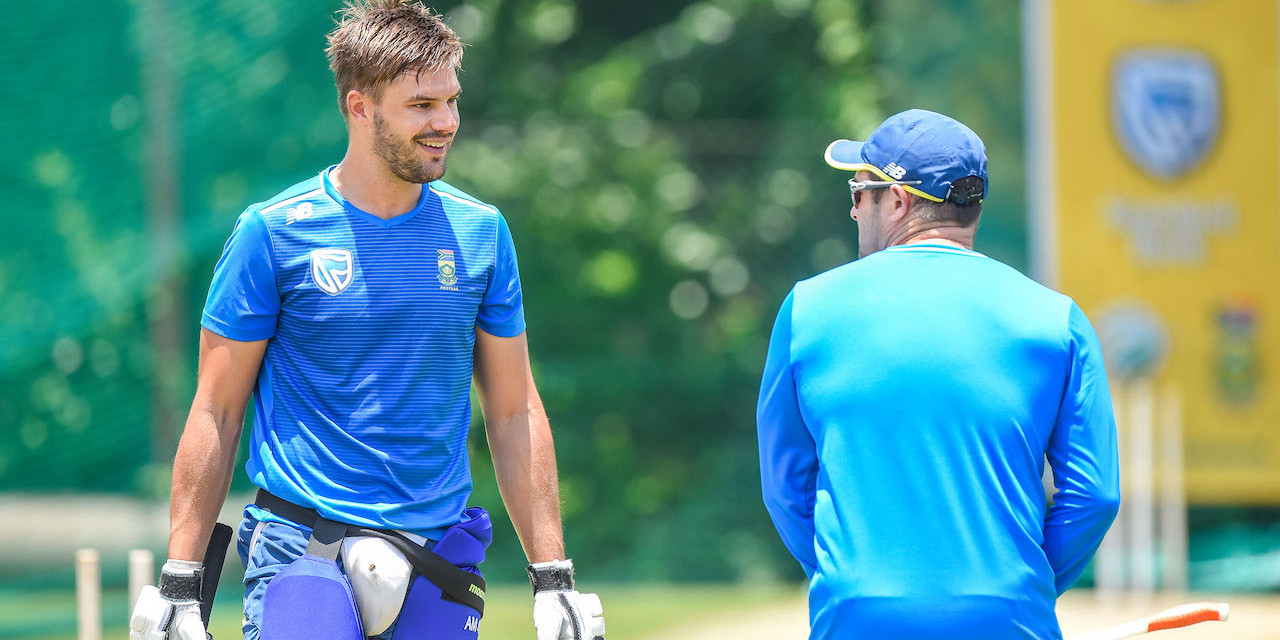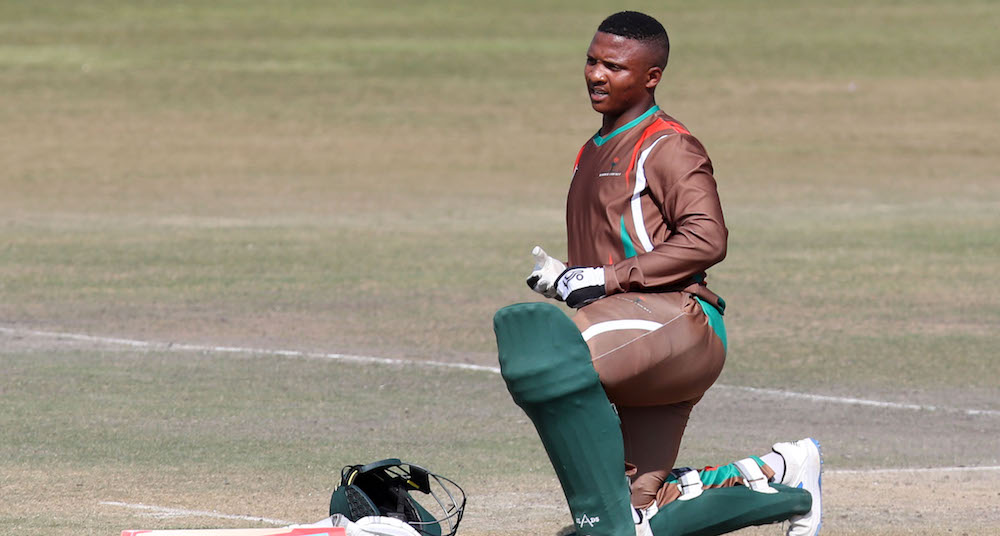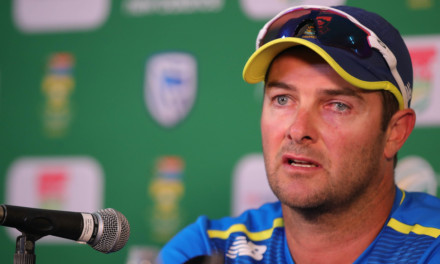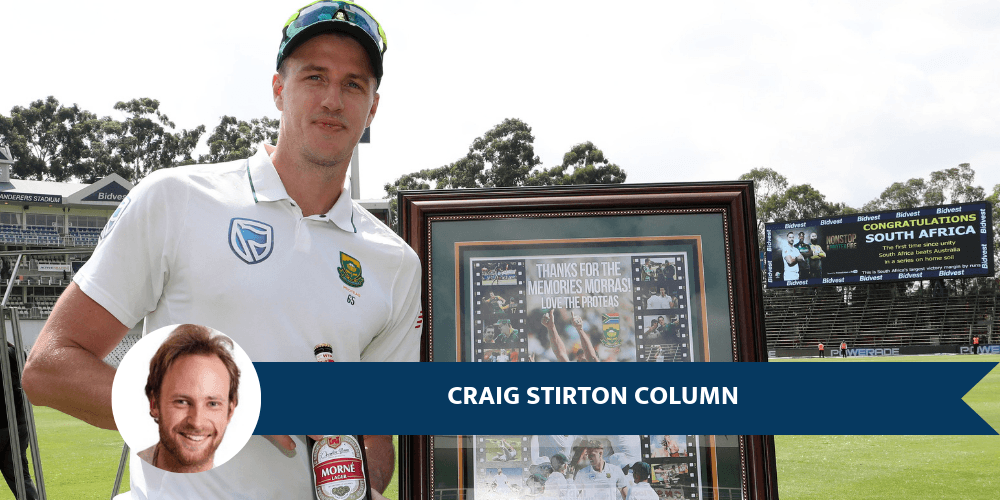The term ‘transition phase’ has been thrown here and there in the past that some sections of the Proteas fanbase no longer take the phrase seriously, writes Chris Chiwanza.
Question: how many times have fans been told that the Proteas are rebuilding after the team has lost a series or a tour?
Since 2015, quite a few times. The term ‘transition phase’ has been thrown here and there in the past that some sections of the Proteas fanbase no longer take the phrase seriously. Who can blame them? The team has used that line for years under different coaches, yet the coaches had different briefs from the board.
For instance, under Otis Gibson, the team was supposed to be rebuilding, yet CSA had tasked Gibson with ensuring World Cup success in less than two years. If truth be told, there was no way he could achieve both at the same time. The result? He achieved neither.
The Proteas rebuilding and transition should have happened years ago, but did not because there were always other distractions. And now, a few years too late, it has fallen on the shoulders of Mark Boucher and his team. And if what they have said is anything to go by, they are indeed focused on the task of ensuring that the transition happens.
CHANGE IS NOT TRANSITION
More often than not, when fans hear that teams are in transition, they expect to see a host of new faces in the squad. But, this is what all teams have generally done (Proteas included). But a change in personnel doesn’t necessarily mean that a team has gone through a rebuilding phase, it takes much more.
In fact, how a transition is approached is often the key to whether it will succeed or not. Make no mistake, not all transitions are successful.
This is why it is vital to focus on transition, not change. Many people mistake one for the other – change for transition, even though they are not quite the same. The difference between these is subtle but important.
Change is something that happens to people, even if they don’t agree with it. It is an external event or situation that takes place: a new coach, new players coming in, that sort of thing. The organization focuses on the desired outcome that the change will produce, which is generally in response to external events. Things like player retirement, injury or meeting certain metrics. Change can happen very quickly.
Transition, on the other hand, is internal: it’s what happens in people’s minds as they go through change. It is the inner psychological process that people go through as they internalize and come to terms with the new situation that the change brings about.
While change happens very quickly, transition usually occurs more slowly. So, while the change may appear to have been implemented flawlessly, the transition happens much slower.

THE PHASES OF TRANSITION
In his 1991 book “Managing Transitions”, William Bridges outlines the three core phases of transitions. He identified them as: letting go of the past ways, a neutral zone where everything seems uncertain, and a new beginning with new ways.
Endings:
All transitions start with an ending. This is paradoxical but true. One era has to run its course, or be deemed to have run its course before a new one can be explored. This first phase of transition begins when people identify what they are losing and learn how to manage these losses. They determine what is over and being left behind, and what they will keep. These may include tactics strategies, a brand of cricket they play or team members.
In the case of the Proteas, they have identified the brand of cricket that they think is no longer serving a purpose. Not only that, but Mark Boucher and others around him have spoken of the new brand of cricket that they want to adopt, “smart and aggressive.”
Neutral Zone:
The second step of transition comes after letting go: the neutral zone. People go through an in-between time when the old is gone, but not entirely and the new is present, but not fully operational. This is the period where critical psychological realignments and repatterning take place. It is the very core of the transition process. This is the time between the old reality and sense of identity and the new one.
Here, team members are adopting new tactics, new strategies and learning what their new roles will be. They are in flux and may feel confusion and distress. The neutral zone is the seedbed for new beginnings. But if not handled properly, it can lead into a spiral of the below-average performance.
By the looks of things, this is where Boucher and his team are.
New Beginnings:
Beginnings involve new understandings, values and attitudes. Beginnings are marked by a release of energy in a new direction – they are an expression of a fresh identity. Well-managed transitions allow people to establish new roles with an understanding of their purpose, the part they play, and how to contribute and participate most effectively. As a result, they feel reoriented and renewed.
THE UGLY BUSINESS OF TEAMS IN TRANSITION
Now, because transitions come with the new and unfamiliar territory for the team to navigate, they also bring internal chaos. This is because it takes a little time for players to get used to new hierarchy, new roles, new leadership. Everyone is bumping into each other trying to find their feet in this new and different ecosystem. And often, the result is a dip in performance as everyone adapts.
For teams that undergo transition and rebuilding phases while they are at the top of their game, sometimes the dip in performance is not very pronounced. However, for a team like the Proteas who have endured years of decline, the dip appears more amplified.
Needless to say, the success of a rebuilding and transition exercise depends on how it is managed. And while I cannot say whether or not the Proteas will be successful, I feel that they have slightly delayed the progress of the process. By not appointing a substantive captain, they made a move that keeps the team in the neutral phase for a little while longer.
By appointing an interim captain and not a substantive leader, they deprived the team of the direction it requires to move forward. They are not allowing players to assume new roles in the evolving ecosystem of the team, thus leaving them in a state of uncertainty.
This also means that they fail to take advantage of the presence of the former captain, Faf du Plessis, who stated that he is there to help mentor the next leader. This is not the only concern as the appointment of interim leaders has also been noted to have a negative impact on the team.
Photo: Christiaan Kotze/BackpagePix











